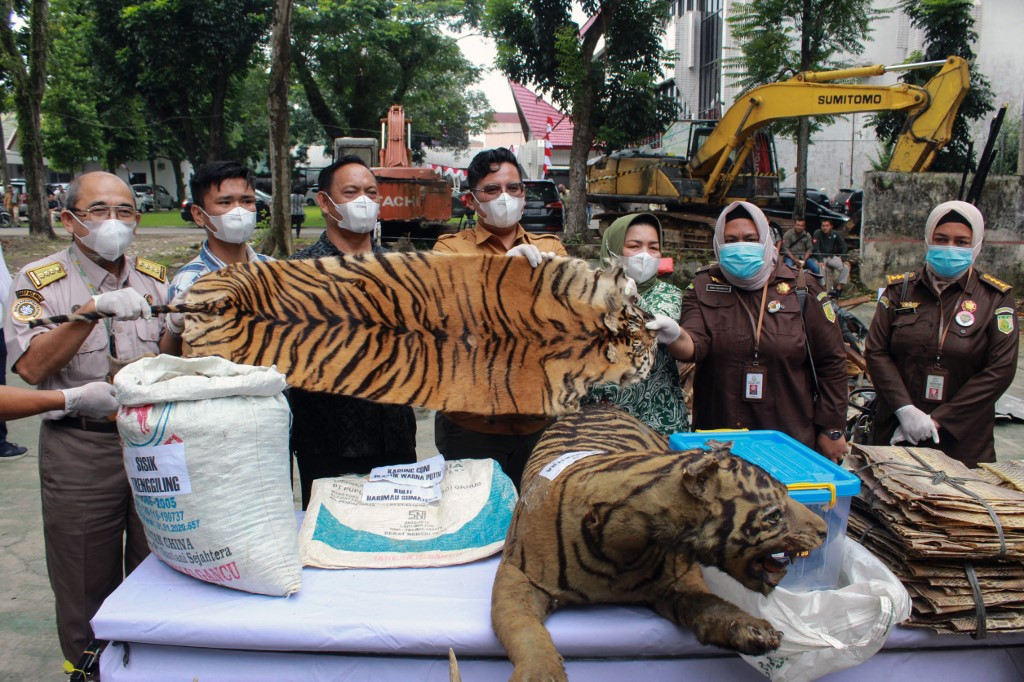Popular Reads
Top Results
Can't find what you're looking for?
View all search resultsPopular Reads
Top Results
Can't find what you're looking for?
View all search resultsWildlife trade now 'serious offence' under Singapore organised crime law
Singapore is a preferred transhipment route for traffickers, conservationists say, with Southeast Asia at the centre of much of the multibillion-dollar illicit industry.
Change text size
Gift Premium Articles
to Anyone
W
ildlife trafficking is now a "serious offense" under Singapore's organised crime law, the city-state's interior ministry has said, with those prosecuted under the code subject to sentences of up to 20 years behind bars.
Singapore is a preferred transhipment route for traffickers, conservationists say, with Southeast Asia at the centre of much of the multibillion-dollar illicit industry.
"The Ministry of Home Affairs will be including wildlife trade offenses as serious offenses in the Schedule of the Organised Crime Act 2015 with effect from 30 August 2024," the MHA said in a statement on Thursday.
If found to have links with crime groups, offenders could face up to 20 years in prison under the organised crime act, the ministry added.
The offenses include the import and export of endangered species and their transit without a permit issued under the Convention on International Trade in Endangered Species of Wild Fauna and Flora (CITES).
The inclusion also empowers authorities to seize ill-gotten gains from wildlife traders with links to organized crime.
Wildlife traffickers without links to organized crime are not covered by the act, and only face up to six years in jail.
The organized crime law covers offenses considered serious threats to public safety and security, and those associated with criminal groups, like drug trafficking and unlicensed moneylending.
"International wildlife trafficking operates through a sophisticated cross-border supply chain," the MHA said.
The move was a "proactive measure" to deter operations of "organized crime groups should such activities emerge in Singapore in the future", it added.
The black market for illegal wildlife products is worth up to US$20 billion a year, according to Interpol.
Southeast Asia is "at the epicentre" of much of the illicit trade, with Singapore seen as a convenient transhipment route by organized crime groups because it is a regional commercial hub, environmental group WWF-Singapore said on its website.
Singapore authorities in October 2022 made their biggest seizure of rhino horn, confiscating a US$830,000 haul from a smuggler arriving from South Africa and intending to travel on to Laos.
And in July of 2019, Singapore made its largest seizure of smuggled ivory, impounding nearly nine tonnes of contraband tusks from an estimated 300 elephants.
The illegal cargo from the Democratic Republic of Congo was bound for Vietnam.











